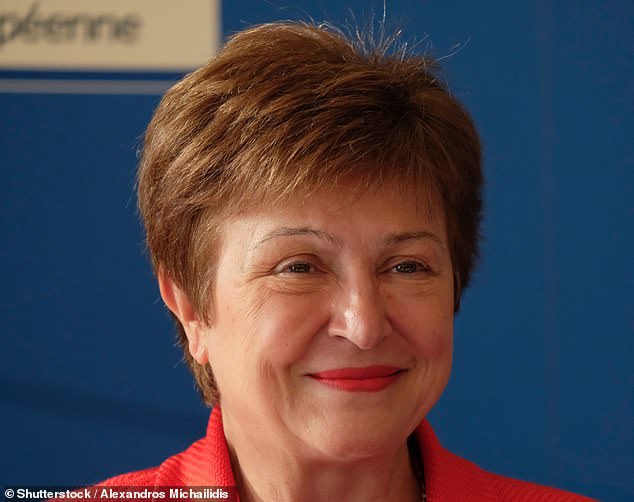Washington DC, in October, is notable for its bright orange and russet foliage and platoons of black limousines ferrying finance ministers, commercial and central bankers from endless meetings to champagne receptions and sumptuous meals.
The annual jamborees of the International Monetary Fund and World Bank, with the G7 pulling the purse strings, aim to bring order to a troubled economic world.
The early indication from the fund’s emollient managing director Kristalina Georgieva is that the world has so far emerged from Donald Trump’s blizzard of tariffs less damaged than feared.
As a result, the fund will be able to raise its global growth forecast on Tuesday when the World Economic Outlook is published.
In the spring the fund estimated that average tariffs of 23 per cent across the globe would see fierce reprisals, wrecking globalisation.
The reality is that by negotiation the effective tariff rate has been lowered to 17.5 per cent and there have been few cases of tit-for-tat retaliation – so far. Fear of trade wars and the removal of the independence of the US central bank, the Federal Reserve, will continue to cast a pall at the fund.

Early indications: IMF managing director Kristalina Georgieva looks set to say that the world has so far emerged from Donald Trump’s blizzard of tariffs less damaged than feared
In these gatherings, the latest crisis will always occupy the policy-makers and banking titans.
Britain, one of the founders of the fund, has found itself at the heart of these events too often.
In 1976, after a wrestle with the US Treasury and the fund, Britain got its infamous bailout requiring the Government to take an axe to public spending and the Bank of England to crush credit creation.
Three decades later it was in Washington that the then Tory Chancellor Norman Lamont admitted to ‘singing in the bath’ after Britain had been turfed out of the exchange rate mechanism, the forerunner of the euro.
The 2008 meeting was held against the backdrop of the Great Financial Crisis, which threatened to destroy Western capitalism.
And after the Liz Truss mini-Budget of 2022, her Chancellor Kwasi Kwarteng was ticked off by the fund before flying home early to be fired by Truss.
Last year Rachel Reeves chose the fringes of the IMF to outline her new fiscal rules which in practice trapped her in a doom-loop of ever higher taxation.
At least the Chancellor, who is due in Washington later this week, is protected by Labour’s big majority in Parliament. France, without a functioning government, and the US, in shutdown, have no such luxury.
DIY INVESTING PLATFORMS

AJ Bell

AJ Bell
Easy investing and ready-made portfolios

Hargreaves Lansdown

Hargreaves Lansdown
Free fund dealing and investment ideas

interactive investor

interactive investor
Flat-fee investing from £4.99 per month

InvestEngine

InvestEngine
Account and trading fee-free ETF investing
Trading 212
Trading 212
Free share dealing and no account fee
Affiliate links: If you take out a product This is Money may earn a commission. These deals are chosen by our editorial team, as we think they are worth highlighting. This does not affect our editorial independence.
This article was originally published by a www.dailymail.co.uk . Read the Original article here. .

